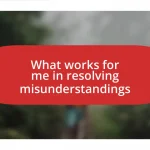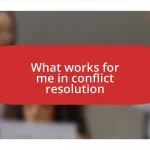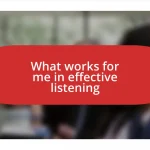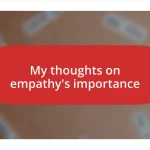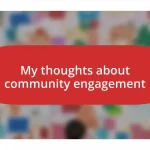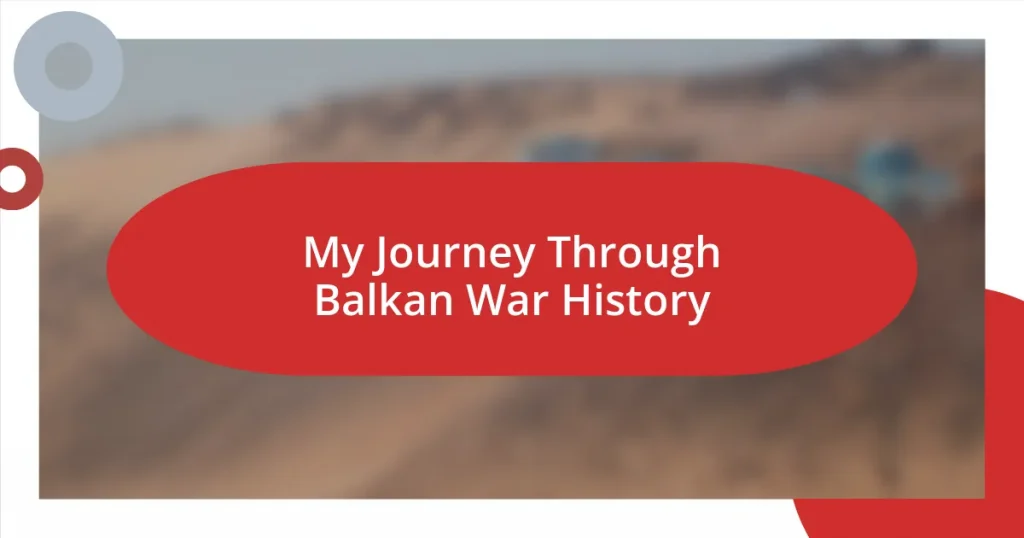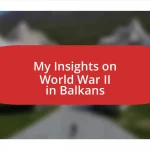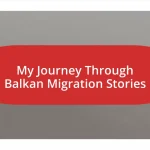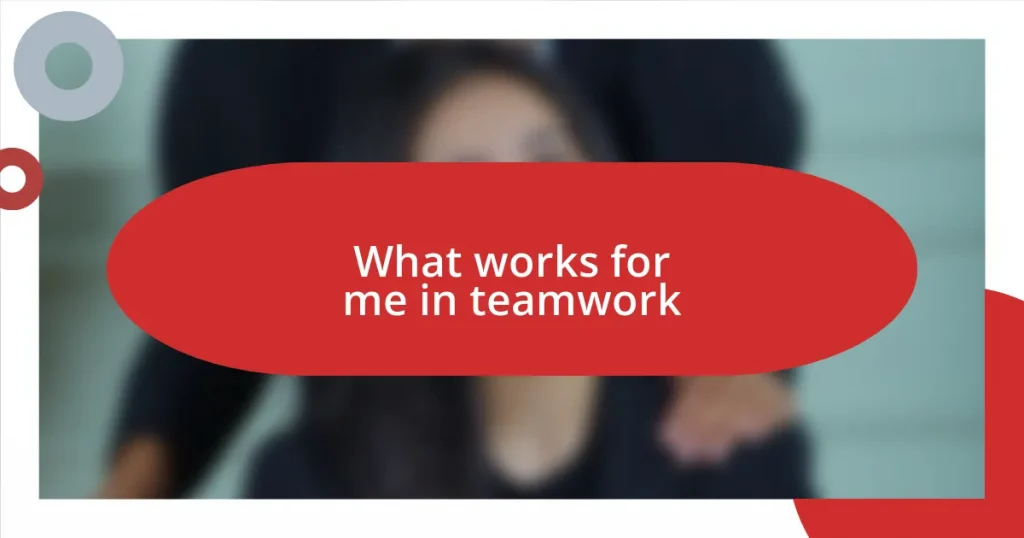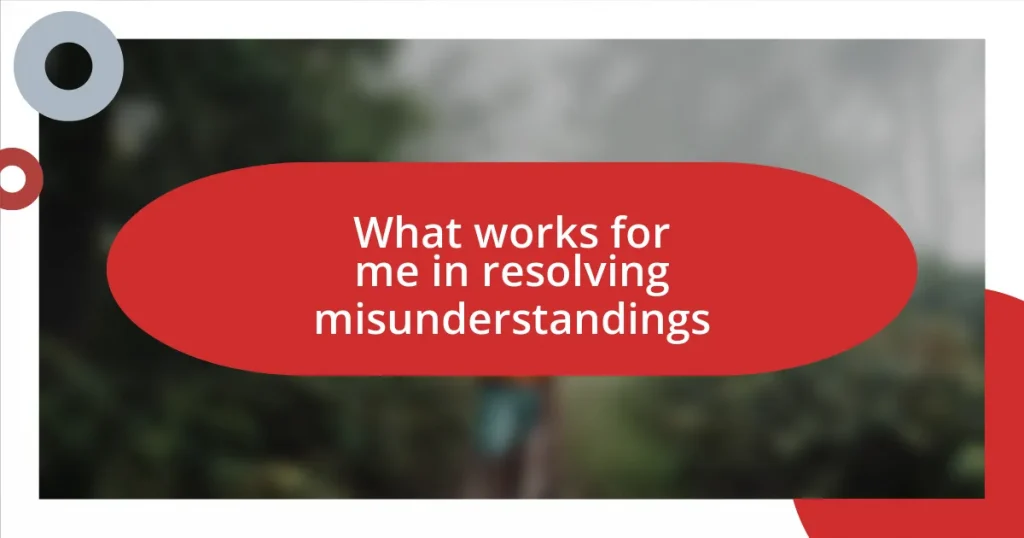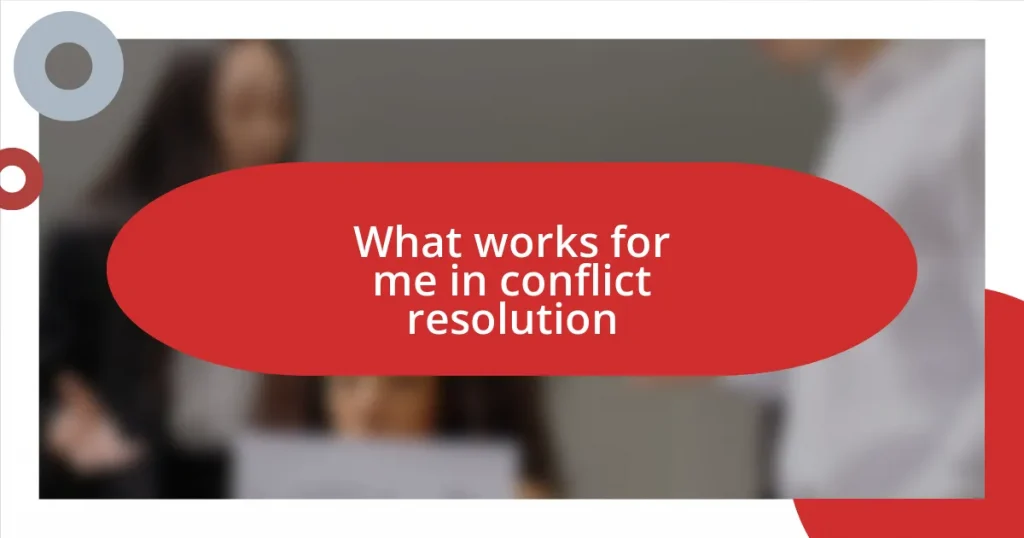Key takeaways:
- The Balkan Wars were shaped by a complex mix of ethnic identities, national aspirations, and external influences, resulting from the decline of the Ottoman Empire.
- Personal accounts from survivors reveal the immediate and lasting impacts of war, emphasizing the profound emotional scars it leaves on individuals and communities.
- Preserving Balkan War history through museums, digital archives, and oral history projects is essential for remembering the experiences of those affected and educating future generations.
- Resources such as documentaries, memoirs, and online discussions can deepen understanding of the wars and their impact on modern society.
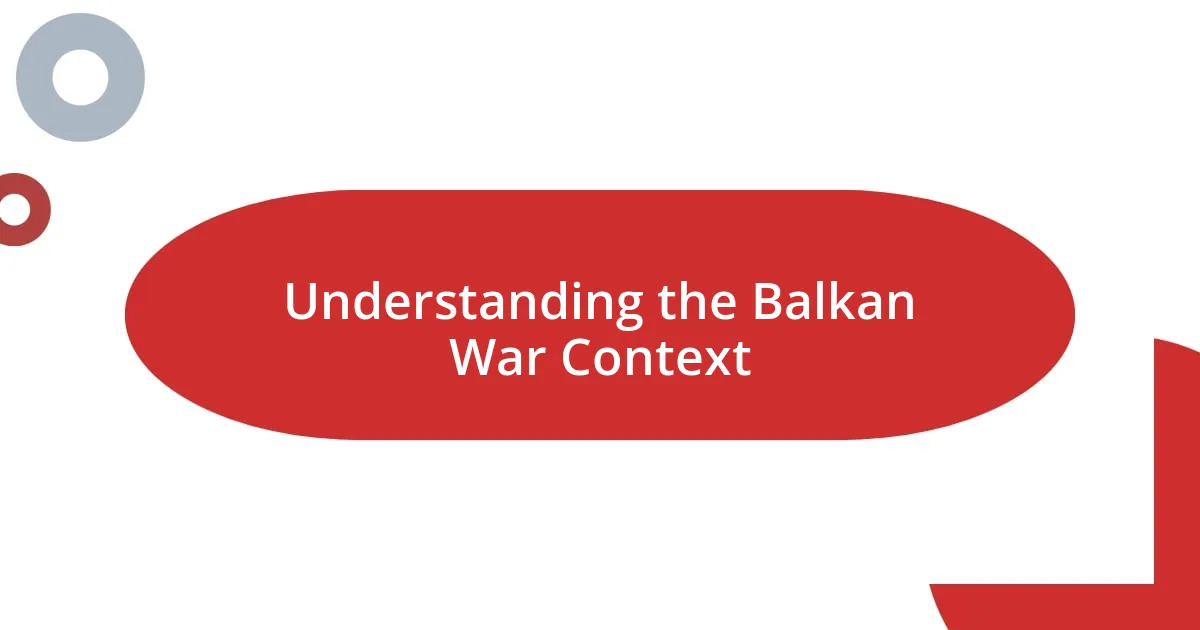
Understanding the Balkan War Context
When I first delved into the history of the Balkan Wars, I was struck by the complex tapestry of ethnic identities and national aspirations that defined the region. It’s not just a historical conflict; it’s a story woven through centuries of struggle, reflecting a longing for identity and sovereignty. Have you ever considered how historical grievances can shape modern realities?
As I explored the socio-political landscape leading up to the wars, I realized how the decline of the Ottoman Empire created a power vacuum. Countries like Serbia, Montenegro, and Bulgaria saw an opportunity to assert their dominance but at a significant human cost. I remember reading personal accounts from those who lived through the violence, and it struck me how deep-rooted fears and hatreds could erupt into chaos in a matter of days.
The role of external powers cannot be overlooked either, as they often fueled tensions for their own strategic interests. I often wonder how many lives might have been spared had the international community intervened differently. Understanding this context isn’t just about dates and events; it’s about real people whose lives were forever altered by the decisions made both inside and outside their borders.
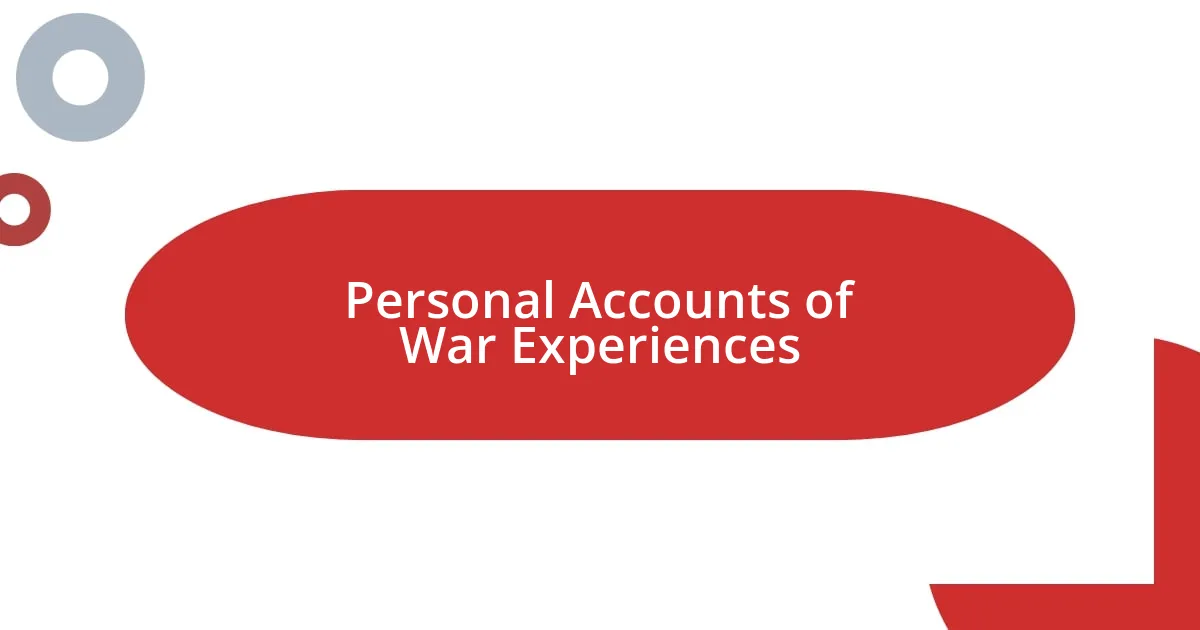
Personal Accounts of War Experiences
Reflecting on the personal accounts of those who lived through the Balkan Wars, I found it incredibly moving. One story that resonated with me was from an elderly man who spoke of the day his hometown was invaded. He described the deafening noises of gunfire and the panic that enveloped his family. His eyes filled with tears as he recounted the moment they had to flee, leaving behind everything they held dear. Such narratives not only highlight the immediate impact of war, but also the enduring scars they leave on the human spirit.
- A woman remembers a night spent hiding in her basement, clutching her children as explosions rattled the walls above.
- A young soldier’s journal reveals dreams of peace turned into battle cries amidst the chaos.
- A mother’s heartbreak as she recalls her son being taken away, never knowing if he’d return.
- An artist finds solace in painting, using colors to depict the horror he witnessed, turning trauma into expressions of hope.
- Survivors recount the friendships forged in adversity, emphasizing how compassion often blooms even in the darkest times.
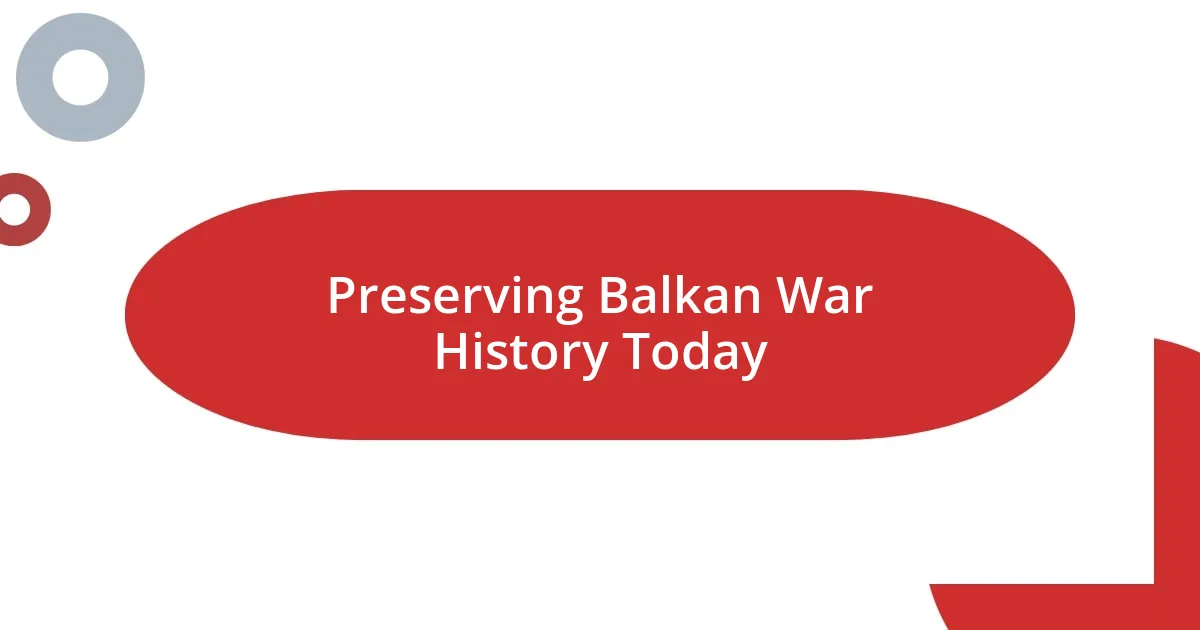
Preserving Balkan War History Today
Preserving the history of the Balkan Wars today is vital for future generations. Museums and memorials play an essential role, offering a tangible connection to the past. I remember visiting a local museum that featured exhibits dedicated to personal belongings and stories from survivors; it was like stepping into history itself. Each item told its own silent story, reminding us of the individual lives intertwined with broader historical events.
In addition to physical spaces, digital archives have emerged as powerful tools for preserving this history. I often find myself exploring online collections that allow people from around the world to access firsthand accounts and documents. The ability to connect with historical material from my own home has made me appreciate how technology can bridge gaps in understanding. Have you ever pondered how much more accessible history has become with just a few clicks?
Community efforts, such as oral history projects, serve as vital means of capturing the experiences of those who lived through the wars. I’ve participated in local discussions where survivors share their narratives, and it feels rewarding to witness their stories becoming woven into our collective memory. These recordings keep the memories alive and remind us of the human resilience amidst conflict.
| Method | Description |
|---|---|
| Museums and Memorials | Serve as physical hubs for history, displaying artifacts and personal stories. |
| Digital Archives | Enable global access to firsthand accounts and historical documents through online platforms. |
| Oral History Projects | Capture living memories by collecting and sharing survivors’ experiences through interviews. |
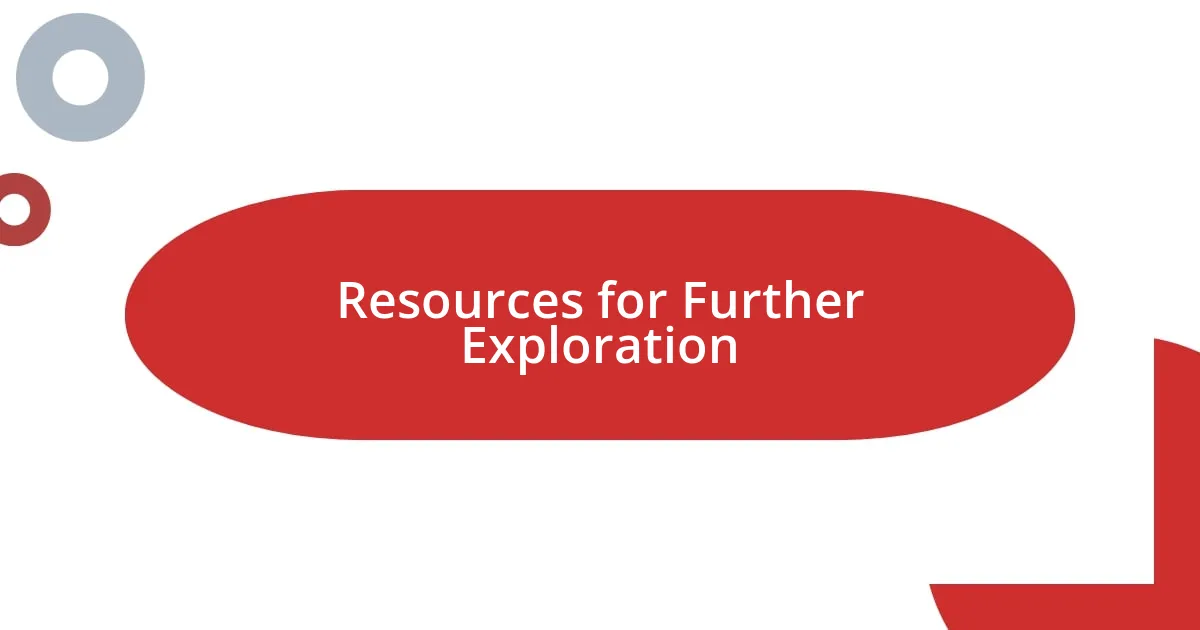
Resources for Further Exploration
Exploring resources for Balkan War history can be incredibly enriching. For instance, I stumbled upon a documentary series that vividly captured the war’s complexities through survivor interviews. It was heart-wrenching to see faces that told stories of loss, yet it illuminated the resilience of the human spirit — a reminder of both the suffering and the courage that arose from such turmoil. Have you ever watched something that changed your perspective on history?
Books also offer profound insights into this period. I often find myself captivated by the memoirs of former soldiers and civilians alike. One book that left a lasting impression on me was a collection of letters exchanged between loved ones during the conflict. Their words are filled with both yearning and hope amidst chaos, creating a deeply personal connection to the past. Isn’t it fascinating how literature can bridge generational gaps, allowing us to feel the weight of history?
Online forums and discussion groups can serve as dynamic spaces for learning and sharing. I remember joining a virtual panel where historians and enthusiasts discussed the implications of the wars on modern Balkan society. Sharing my thoughts and hearing differing perspectives was not only eye-opening, but it deepened my understanding of how intertwined personal experiences are with historical narratives. Have you thought about engaging in such discussions to enrich your own comprehension of the past?

